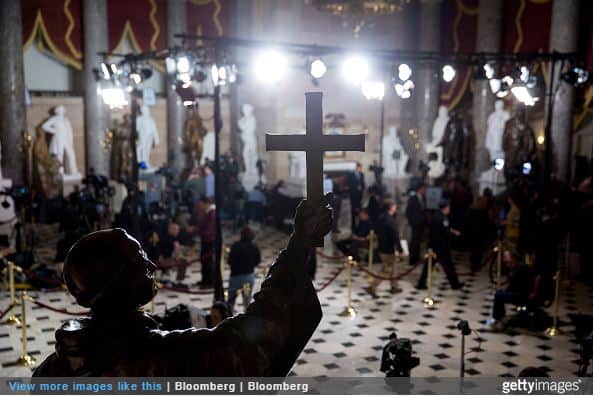I grew up in Southern California. And just like every fourth grader in the state, I learned about the Spanish colonial mission history, and especially the story of Fray Junipero Serra1, Franciscan founder of the first nine missions in Alta California. My public school even made the requisite field trip to Mission San Fernando.
As a Catholic kid, this felt especially exciting. I felt connected to the mission, which, after decades of Mexican secularization and historical neglect, returned to being a working parish church almost hundred years ago. Later, I attended the high school seminary directly adjacent to the mission. We weren’t generally allowed to leave campus (we boarded during the week and went home on the weekends), but occasional exceptions were made to go next door and visit the mission.
Since then, I’ve maintained a fascination with this period of California history. It’s always seemed to me to be an incredible story of a clash of cultures: the imposition of often unwelcome new ideas from outside; the loss of long held lifeways. I’ve visited most of the California missions by now. I’ve stopped at the gravesite of Fray Serra at San Carlos Borromeo in Carmel. I’ve even visited the mission most people don’t even know exists: San Antonio de Pala, the last of the missions2 still serving an Indian population.
On Wednesday, September 23, Pope Francis will canonize Serra at a mass in Washington, DC. I have to tell you, I have very conflicted feelings about this. I want to hold that sainthood is not the same as having lived a morally perfect life, and yet I’m compelled by the author of one of the articles below who writes, “In the Gospel of Matthew, Jesus says, ‘By their fruits you shall know them.’ What are the fruits of the work of Serra and the friars that followed him?” I want to say that honoring a man is not the same as honoring the system or the era he worked in. Yet, the reality is that Serra, being the founder of the missions of Alta California, cannot really be separated from the mission system, including its errors and abuses.
One thing is certain: the debate about Serra’s canonization and the realities and legacies of the mission era will continue long after Pope Francis has returned to Rome. For now, take a look at a few articles and stories looking at the debate from different points of view:
Our own Ken Homan looked at the controversy back in February, soon after Pope Francis announced his intention to canonize Serra:
“To reduce Serra to a perpetrator of genocide does a disservice to other Native American tragedies and massacres, as well as the history. Hyperbole is an exceedingly dangerous tool in history. Serra did not set out with a plan for the mass murder of a people. He did not actively seek to annihilate a civilization. Overuse of the word genocide detracts from those who have suffered it. Serra did not murder, but he did participate in the destruction of cultures. His absolute insistence on Spanish-style Catholicism forever wiped out indigenous traditions, languages, and lifestyles.”
Catholic News Service and the Los Angeles Times have both interviewed two cousins, descendants of the Bay Area’s indigenous Ohlone people, who take different views of Serra’s canonization.
- The older cousin, Andrew Galvan, thinks that Serra is deserving of the title “saint.” From the CNS story: ““He loved my ancestors. He loved Indians, He was in love with the idea of being a missionary here. His descriptions of my ancestors are fantastic,” he said. “I’m in love with him and I’m devoted to him.”
- Galvan’s younger cousin, Victor Medina, disagrees. From the LA Times story: “Medina says he sees Father Junípero Serra as the imperfect leader of an often ‘hurtful and catastrophic’ institution — not a saint.” In spite of that, it was recently announced that Medina will proclaim a scripture reading at Serra’s canonization in Chochenyo, the nearly extinct language of the Ohlone people.
Taking a strong position in opposition to the Serra canonization, several contributors to Indian Country Today have written their objections in no uncertain terms.
- Christine Grabowski takes aim at a claim that Serra composed the first Bill of Rights for Indians: There is a scurrilous fabrication being disseminated by the Catholic Church regarding Junípero Serra, the missionary whom Pope Francis intends to canonize…These specious claims are not supported by the historical record.”
- Suzanne Shown Harjo specifically asks Pope Francis to reverse Serra’s canonization, and and rescind the papal bulls relating to the Doctrine of Discovery: “Father Serra carried out injustices and atrocities against Native Peoples in California, but all Native Peoples feel his cruelties, just as Lt. Col. George Armstrong Custer did not murder and maim people of every Native Nation, but all Native Peoples recognize his war crimes. Their brutalities are so symbolic as to be substantive.”


